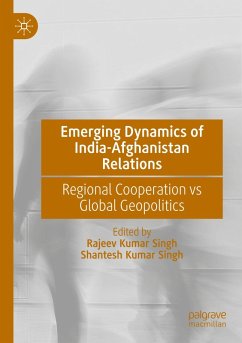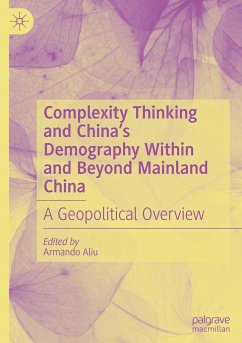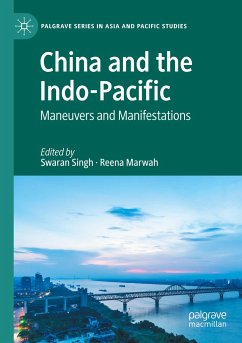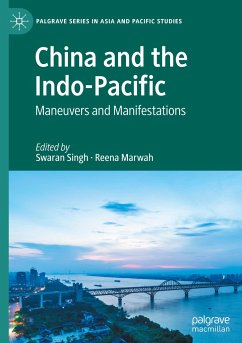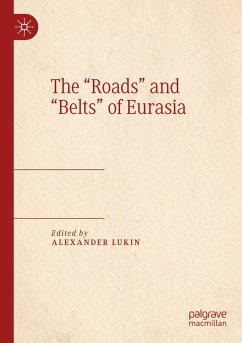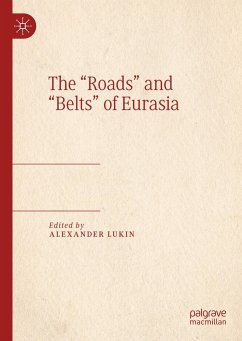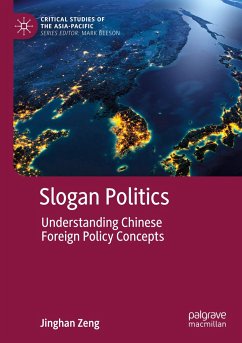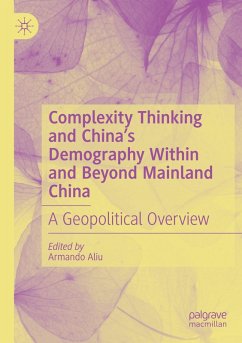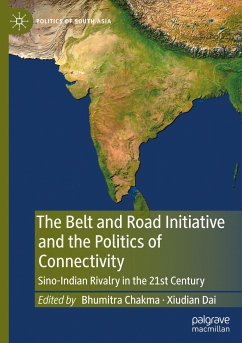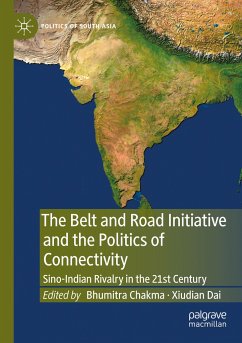
Emerging Dynamics of India-Afghanistan Relations
Regional Cooperation vs Global Geopolitics
Herausgegeben: Singh, Rajeev Kumar; Singh, Shantesh Kumar

PAYBACK Punkte
46 °P sammeln!
This book is about the trajectory of Indo-Afghanistan relations and its setting in the multilateral global order especially the interplay of the super-powers and the regional powers along with the emerging humanitarian crisis along with India's concern and insecurity dilemma that emerged due to Taliban 2.0 in a multilateral setting. It is an attempt to evolve an understanding encompassing all the major dimensions of bilateral relations with special references to Asia. The content of the book encompasses the historical cultural and geo-political setting of the country in discussion as well as t...
This book is about the trajectory of Indo-Afghanistan relations and its setting in the multilateral global order especially the interplay of the super-powers and the regional powers along with the emerging humanitarian crisis along with India's concern and insecurity dilemma that emerged due to Taliban 2.0 in a multilateral setting. It is an attempt to evolve an understanding encompassing all the major dimensions of bilateral relations with special references to Asia. The content of the book encompasses the historical cultural and geo-political setting of the country in discussion as well as the role of the established and emerging superpowers and their possible implications. It will help readers understand the Afghanistan conundrum and the role of India and international players in the present state of affairs



